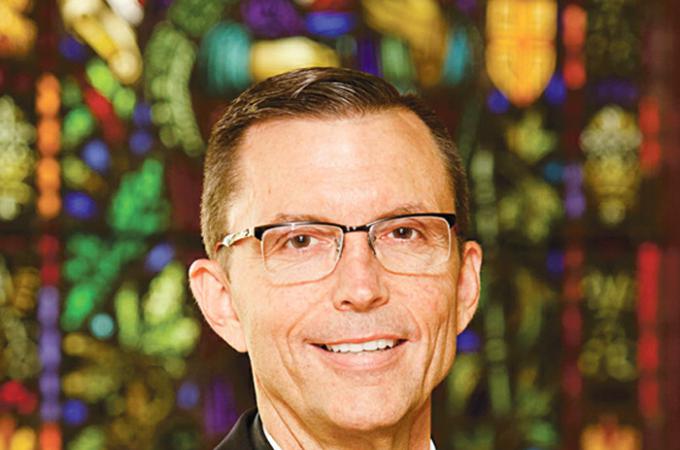Bishop Reed to head USCCB communications committee
BRAINTREE -- During the fall assembly of the United States Conference of Catholic Bishops (USCCB) Nov. 16-17, Bishop Robert P. Reed was selected to be the next chairman of the conference's Committee on Communications.
Bishop Reed is the pastor of the Watertown collaborative of St. Patrick and Sacred Heart and the president and CEO of the CatholicTV Network. He will succeed Bishop Michael F. Burbidge, bishop of Arlington, as the chairman of the USCCB's Committee on Communications next year, and will serve in that position for three years.
In a Nov. 17 interview, Bishop Reed said he was "honored to even be on the ballot."
"It's a great honor to be thought of for this responsibility," he said.
Having served on the communications committee for four years, he said, "I've come to appreciate the people involved in the office for communications, and also the enormous task that they have and that the committee has."
Bishop Reed pointed out that the work of communications is "central to the Church."
"In proclaiming the Gospel, we are communicators. It's fundamental to the mission of the Church," he said.
The USCCB's Communications Department has five teams composed of bishops and lay experts. These teams are overseen by Chief Communications Officer James Rogers.
One of the teams runs the Catholic Communications Campaign, a collection taken up each year on World Communications Day, the Sunday before Pentecost, to provide grants for projects that evangelize through the media. The collection is split equally between the participating dioceses and the national office.
The other teams are the Catholic News Service, the news and information arm of the USCCB; the Creative Services Office, which provides writing, editorial, design, and production services in developing USCCB resources; Marketing and Episcopal Resources, which promotes and distributes USCCB resources; and the Public Affairs Office, which provides information about the USCCB to the secular and religious news media.
Bishop Reed acknowledged that this past year, during which the coronavirus pandemic forced people to find alternatives to meeting in person, has been an example of how "things are always changing" in communications.
"COVID itself has presented tremendous challenges to continuing the mission of the Church and the work of communication. So you have to always be ready to refocus and be strategic," Bishop Reed said.
The USCCB was no exception. Rather than gathering in person, the bishops held their fall General Assembly virtually due to the pandemic. Bishop Reed acknowledged how different this made the annual event.
"You don't have that natural contact with the bishops in between sessions. In that way it's quite different. But we're all used to this way of communicating and meeting now," Bishop Reed said.
He said that he thinks using video conferencing has afforded the bishops opportunities to speak up and make comments.
"It's been good, and I think it's the best we can do. It certainly is an effective means for the moment," Bishop Reed said.



















